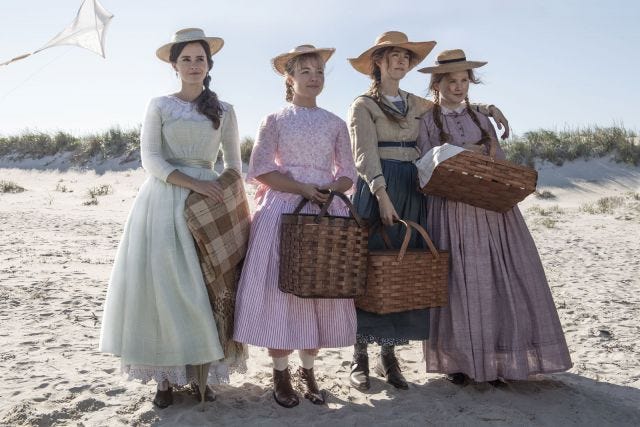Lady Business: Women in power vs. empowering women, coronavirus edition
Hello and welcome to Lady Business, a newsletter about women, the business world, and all the ways they overlap. You can sign up for Lady Business and read previous issues here. This is the 100th (!) issue, published April 26, 2020.

Covid Celebrities
Angela Merkel. Jacinda Ardern. Gretchen Whitmer. London Breed. Lori Lightfoot.
But also: Kristi Noem. Carolyn Goodman.
If you’re in the business of writing about gender, sooner or later (or, let’s face it, all of the time) you’ll be told how “empowering” your work should be. Which always makes me wince a little bit.
“Empowerment” is corporate-speak for PR and positive spin. It implies that all things that women do are interesting and good and should be uncritically covered, like journalistic cheerleading. And, obviously, it’s not what any journalist should be in the business of doing.
Combatting sexism and misogyny both institutional and specific? That’s every journalist’s responsibility. Doing so by identifying more women who have done important things, however complicated their legacies? Yes. And by writing about subjects that have been historically under-covered, because they primarily affect or are important to women? Absolutely.
Covering everything that every woman does, but only in ways that put her in a good light? Nope, not my job. Or any journalist’s. Even if there’s a particular sanctimonious fury often reserved for women who let down other women by reporting unpleasant facts about yet other women, thus reserving that oft-cited special place in hell, etc. etc. etc.
Which brings me to the contradictions of one of the happier Covid-19 news cycles of recent weeks: As has been widely noted, the world (and state and local) leaders who are best handling the pandemic mostly seem to be women. Yet that doesn’t mean that all of the best crisis leaders are women -- or that all of those failing are men:
South Dakota Gov. Kristi Noem on Thursday bemoaned Congress' restrictions on coronavirus relief funds allocated to the state. … Her comments come on the heels of a stunning surge of coronavirus cases in South Dakota. Noem, a Republican, has faced criticism for refusing to issue a mandatory stay-at-home order, even following an outbreak at a major pork processing plant in the state.
This might be a counter-intuitive argument to make in this very bluntly-named newsletter, and it’s a subtle one. But the “woman=good leader” construction is simplistic and flattening at best, putting all women leaders on a handful of precarious pedestals -- and offering them much less opportunity for failure.
I very much applaud the recognition that Ardern and Merkel and Lightfoot et al are getting, for listening to scientists and public health officials and acting calmly and rationally and humanely, and for not letting their egos get in the way of saving their citizens’ lives. I am, like Rebecca Traister, so sick “of listening to men argue about which of them is more powerful.” And I very much believe the umpteen studies showing that women leaders, in general, outperform men.
But I don’t think it has to do with any genetic gender essentialism so much as higher requirements for baseline competence. So few women, still, are able to break through the ranks of mediocre men, and those that do have to “work twice as hard and be twice as smart” to get half the credit, as former Australian prime minister Julia Gillard put it.
Once that handful of hardworking women does break through, many of them are good leaders. Some of them are not. It would be nice for all of our leaders to have a higher level of baseline competence. It would be so amazing if they were all listening to scientists and public health officials, and acting calmly, rationally, and humanely.
But there’s no way to get there if male leaders aren’t held to the same high standards of baseline competence -- and if we don’t have as many women allowed to fail, and be criticized for doing so, as those we want to celebrate.
Lady Bits
--“Sometimes having anything be possible makes it harder, because you don’t even know where to start. The truth is, we’re always cooking with some constraints. We just don’t realize that often constraints are a gift.” I always enjoy interviewing Samin Nosrat.
--“No. We are not open for brunch. There is no more brunch.” Prune’s Gabrielle Hamilton, heartbreaking and funny, on closing her iconic restaurant and wondering if it will ever re-open.
--I’ve never actually been very fond of Little Women, for all that I read it multiple times growing up. But I finally saw Greta Gerwig’s adaptation and adored it, especially the maturity she let Amy earn and the deft, meta way she handled the ever-problematic ending. And it sent me down the rabbit hole of “think pieces about secondary Little Women characters and their real-life inspirations”: Marmee, Amy, Beth.

Thank you for reading, commenting, and subscribing to this newsletter! Please tell your friends to sign up here, let me know what you think about this week's issue, and what else you'd like to see me write about: maria.aspan@gmail.com


